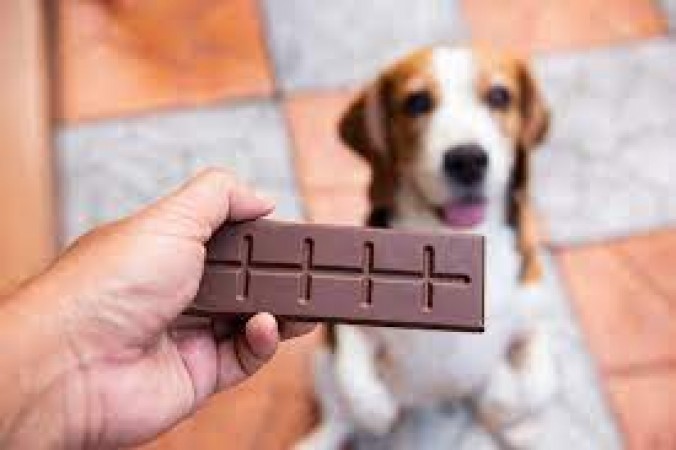
Dogs are known for their curious and mischievous nature, and sometimes, they may get their paws on something they shouldn't, like chocolate. Chocolate can be a delightful treat for humans, but it poses serious health risks for dogs. As a responsible pet owner, it's essential to know how to handle such a situation to ensure the well-being of your beloved canine companion. In this article, we will explore the dangers of chocolate for dogs, the signs of chocolate toxicity, immediate steps to take, and effective home remedies to counteract chocolate ingestion in dogs.
The Dangers of Chocolate for Dogs
Chocolate contains theobromine and caffeine, which are toxic to dogs. These substances can lead to various health issues, such as vomiting, diarrhea, increased heart rate, seizures, and even death. Dark chocolate and baking chocolate contain higher levels of theobromine, making them more dangerous than milk chocolate.
Signs and Symptoms of Chocolate Toxicity
It's crucial to recognize the signs of chocolate toxicity in dogs promptly. The symptoms may include restlessness, panting, excessive thirst, rapid breathing, muscle tremors, and an abnormal increase in body temperature. In severe cases, dogs may experience seizures or collapse. If you notice any of these symptoms after your dog ingests chocolate, act immediately.
Immediate Steps to Take
Call Your Veterinarian
If you suspect your dog has consumed chocolate, contact your veterinarian immediately. They will provide guidance based on the type of chocolate ingested, the amount, and your dog's size and health condition. Time is of the essence in these situations, so don't delay seeking professional advice.
Determine the Amount of Chocolate Ingested
Try to determine the quantity and type of chocolate your dog has ingested. This information will be crucial for your veterinarian to assess the level of toxicity and recommend appropriate treatment.
Observe Your Dog's Behavior
Keep a close eye on your dog's behavior and monitor any changes. Note down the time of chocolate ingestion and the onset of any symptoms. This information will help your veterinarian assess the situation accurately.
Home Remedies for Chocolate Ingestion in Dogs
While waiting for professional help, you can administer some home remedies to mitigate the effects of chocolate ingestion. However, these remedies should never replace veterinary care. They are only meant to be used as a temporary measure until you can seek proper medical attention for your pet.
Activated Charcoal
Activated charcoal can help prevent the absorption of toxins in the stomach. You can administer activated charcoal in the form of capsules or tablets, but it's essential to follow your veterinarian's recommended dosage.
Hydrogen Peroxide
In some cases, your veterinarian may advise you to induce vomiting using hydrogen peroxide. This should only be done under their guidance, as inappropriate use can lead to further complications.
Feeding Pumpkin Puree
Feeding your dog pumpkin puree can help absorb some toxins and soothe the digestive system. Ensure that the pumpkin puree is plain, with no added sugars or spices.
Milk Thistle
Milk thistle is known for its liver-supporting properties. It can help protect the liver from potential damage caused by chocolate toxicity. Again, consult your veterinarian for the correct dosage.
What NOT to Do
In the panic of the moment, it's essential to avoid making mistakes that could worsen your dog's condition. Here are some things you should NOT do:
Do Not Wait: Chocolate toxicity can escalate quickly, so seek veterinary help without delay.
Do Not Self-Medicate: Home remedies are not a substitute for professional veterinary care.
Do Not Give Human Medications: Over-the-counter medications meant for humans can be harmful to dogs.
Do Not Use Salt: Salt is not effective in inducing vomiting and can be dangerous for dogs.
Preventing Chocolate Ingestion in the Future
Prevention is always better than cure. Here are some measures to prevent your dog from ingesting chocolate in the future:
Keep Chocolate Out of Reach
Store chocolate products in secure containers and keep them out of your dog's reach. Remember that dogs can be resourceful, so store chocolate in high cabinets or locked drawers.
Offer Safe Dog Treats
Provide your dog with safe and delicious dog treats that are specifically made for canine consumption. Avoid using chocolate or chocolate-flavored treats, as this can create confusion for your pet.
Educate Family Members and Guests
Ensure that everyone in your household is aware of the dangers of chocolate for dogs. Educate your family members and guests about the importance of not sharing chocolate or leaving it within the dog's reach. If your dog ingests chocolate, it's crucial to act quickly and seek veterinary assistance. Remember that home remedies can only offer temporary relief and should never replace professional care. Prevention is key to keeping your dog safe from chocolate toxicity. By being proactive and vigilant, you can create a safe environment for your furry friend.
Achieving Long-Term Career Goals: The Power of Short-Term Objectives